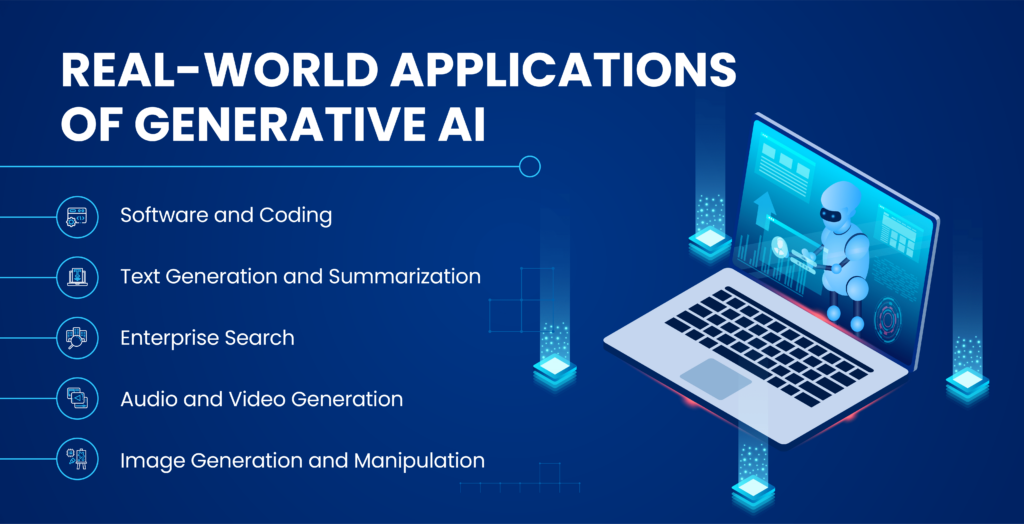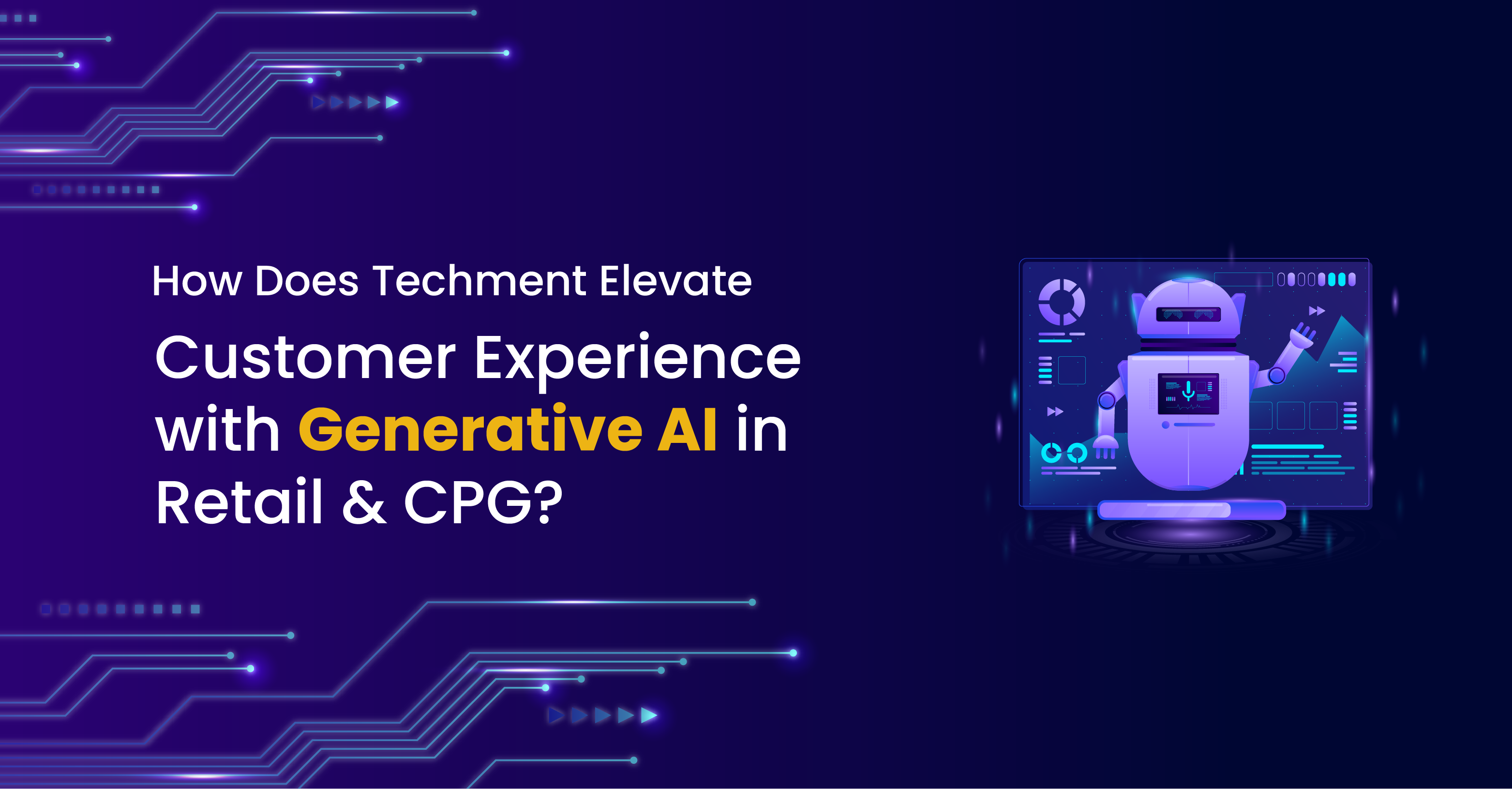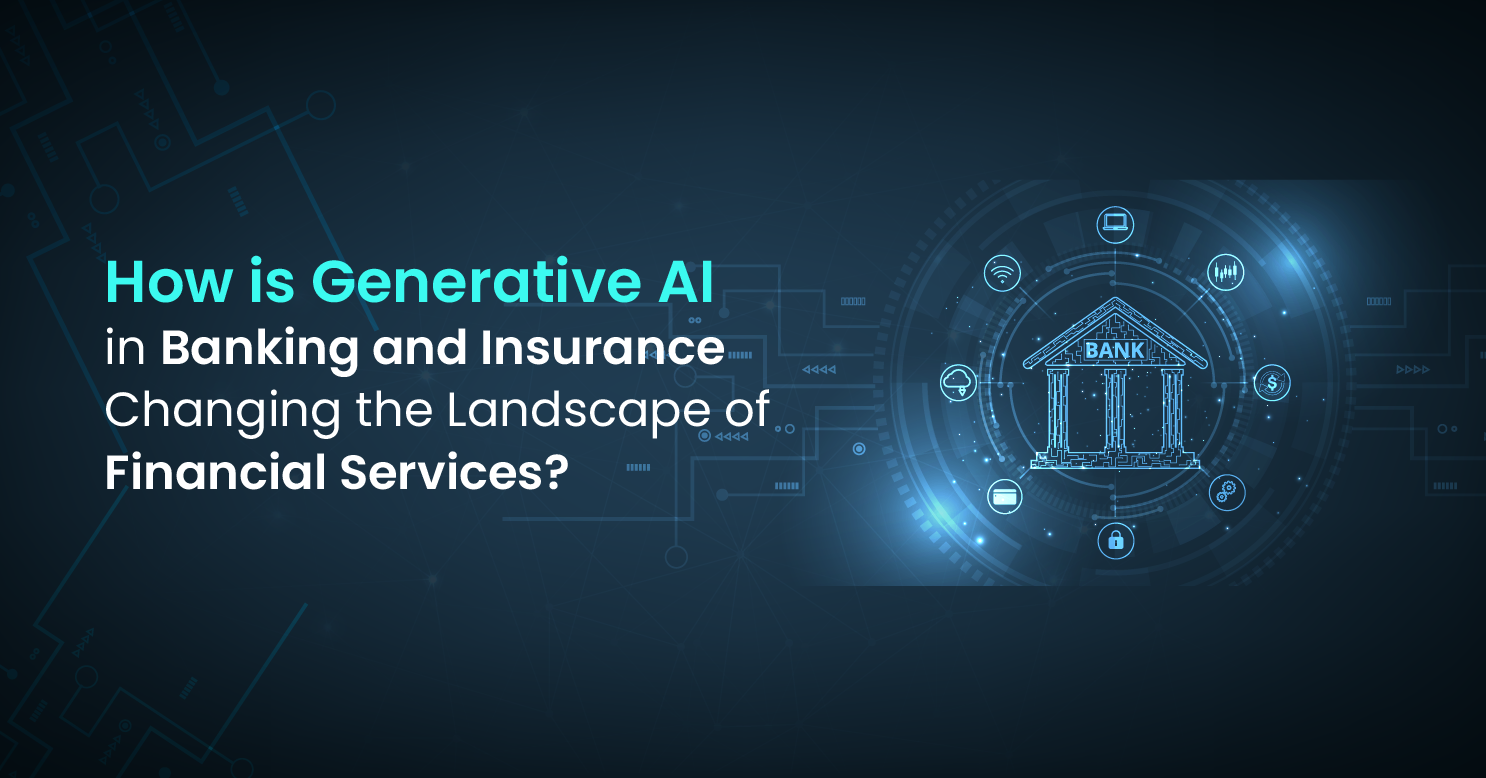Generative AI’s use cases and applications have gradually expanded into various industries, showcasing its remarkable capability to create new content in diverse forms, such as audio, art, and text, by learning from data without explicit instructions. Its advanced algorithms can analyze data without explicit instructions, generating innovative insights to help businesses remain competitive in a dynamic market.
Generative AI and the launch of ChatGPT in November 2022 have captured the attention of organizations and consumers. This technology can potentially revolutionize critical areas such as sales, marketing, customer operations, and software development. Generative AI can unleash trillions of dollars in value across diverse sectors by crafting compelling text, composing music, and producing digital art. With its remarkable capabilities, generative AI is a must-have tool for any business that wants to remain competitive in today’s dynamic market.
In the ‘State of IT Report’ released by Salesforce in March 2023, 67% of IT leaders prioritize generative AI for their business, with 33% naming it a top priority. 86% of IT leaders now expect generative AI to play a prominent role in their organizations shortly. Generative AI streamlines workflows in content creation by automating repetitive tasks, boosting productivity, and fostering creativity. It facilitates personalized experiences, tailoring content to individual preferences and enhancing user engagement.
Beyond content creation, generative AI is pivotal in data synthesis and analysis. By synthesizing vast datasets, it uncovers valuable insights, accelerating decision-making processes and driving strategic initiatives. Moreover, generative AI enables the creation of realistic simulations and scenarios, revolutionizing industries like healthcare, finance, and manufacturing through predictive modeling and risk analysis. In the current landscape, the use cases for generative AI continue to proliferate, with advancements in deep learning algorithms fueling its capabilities.
Real-world Applications of Generative AI
Generative AI use cases and applications are rapidly evolving and maturing, poised to unlock new frontiers in creativity and innovation. It has significantly expanded the horizons of what AI can accomplish. This technology offers various capabilities, including video and audio generation, synthetic data creation, text generation, and code generation. Its versatility spans multiple domains, offering opportunities for businesses of all sizes to thrive.
Here are some of the most popular real-world use cases and applications of Generative AI:

Software and Coding: One of the significant use cases of Generative AI is in the software industry, as it enhances developer productivity and enriches their experience. It can elevate code quality and bring novel avenues for software innovation in the following ways:
- Code Generation: When the model is trained on existing code repositories, Generative AI can generate code functions, snippets, or even entire programs based on prompted requirements.
- Code Completion: It offers intelligent code completion and suggestions. IDEs can leverage generative AI models and predict future code lines based on the context, providing developers with valuable assistance and enhancing their coding experience.
- Test Case Generation: Utilizing generative AI models can generate test cases to evaluate the software’s functionality, ensuring that it operates as intended.
Automated Bug Fixing: It can even identify and fix the bugs in the code
Text Generation and Summarization: Text-generative AI platforms like ChatGPT have been popular since their inception. These platforms excel in creating diverse content types, including articles, blog posts, dialogues, text summaries, language translations, and website text generation, leveraging Natural Language Processing (NLP) to comprehend prompts and deliver intelligent responses. This technology has significantly streamlined content creation and communication processes across various domains.
Generative AI models can be utilized for text generation in the following ways:
- Creating engaging marketing content
- Generating personalized product recommendations
- Writing compelling storytelling narrative
Enterprise Search: Many businesses need help with the overwhelming amount of information in today’s digital age. Navigating and finding relevant information remains challenging despite using various custom tools. However, there is significant potential in introducing conversational experiences that can help businesses organize and discover information in real time.
Generative AI has revolutionized enterprise search from a transactional process to a conversational one. AI foundational models can transform user interactions through natural language processing (NLP) and machine learning (ML). For example, IBM’s Watson Assistant utilizes a cutting-edge AI framework called Retrieval-augmented generation (RAG). This framework combines search with generative artificial intelligence to retrieve enterprise-specific information from a search tool or vector database and then generate a conversational answer grounded in that information.
Generative AI has the potential to facilitate various search-related tasks such as summarization, classification, query parsing, and response quality.
- Summarization involves generating summaries that can be provided in response to user searches.
- Classification involves identifying and assigning metadata to digital assets and their components.
- Query parsing entails rephrasing user queries so they can be processed against the index.
- Response quality involves evaluating the effectiveness of responses to ensure that they are relevant to the initial query.
Audio and Video Generation: Audio and video generation are crucial applications of Generative AI, offering solutions in text-to-speech (TTS) generation, music creation, and speech-to-speech (STS) conversions. TTS generators can produce natural-sounding speech audio from textual prompts, making them significant for speech-based interfaces and assistive technologies. Meanwhile, STS (speech-to-speech) conversions involve generative AI to create new speech or voices based on existing audio files. This technology is commonly utilized in various audio-related AI applications.
TTS AI trains machine learning models with extensive speech and text data, fine-tuning them to generate high-quality speech from text. These generators utilize GAN technology, a machine learning model consisting of two competing neural networks, to produce realistic speech audio from textual prompts provided by the user. These TTS AI tools are trained using extensive text and speech data, allowing them to generate high-quality audio from text with the ability to be fine-tuned for optimal performance.
Generative AI has progressed significantly beyond the notion of advanced technology. Developers and organizations are readily adopting this technology to develop generative AI applications that result in notable transformations, innovation, enhanced scalability, and overall business growth.
Businesses Should Harness the Promise of Generative AI Responsibly
Generative AI models are transforming the way we work and create. They can recognize patterns, learn from data, and generate content without human intervention. This presents an enormous opportunity for businesses and individuals to improve productivity, boost creativity, and scale their operations to new heights.
But with great power comes great responsibility. As we continue to embrace the possibilities of generative AI, it is crucial to consider the ethical implications and navigate the ever-changing landscape carefully. The future of generative AI holds even more promise, with advancements likely to blur the lines between human and machine collaboration. As we move forward, let us be mindful of the immense potential of generative AI and work towards unlocking its full potential responsibly.
At Techment, our generative AI services are fueled by extensive proficiency and relentless innovation, enabling us to provide customized solutions. We are widening our spectrum in Generative AI by testing its application in various use cases, like utilizing Open AI’s LLM and GPT 4.0 in conversational AI to respond to queries in multiple formats like text and pdf.
Connect with our resident architects to learn more about our AI and other technologies capabilities.
 All Posts
All Posts


